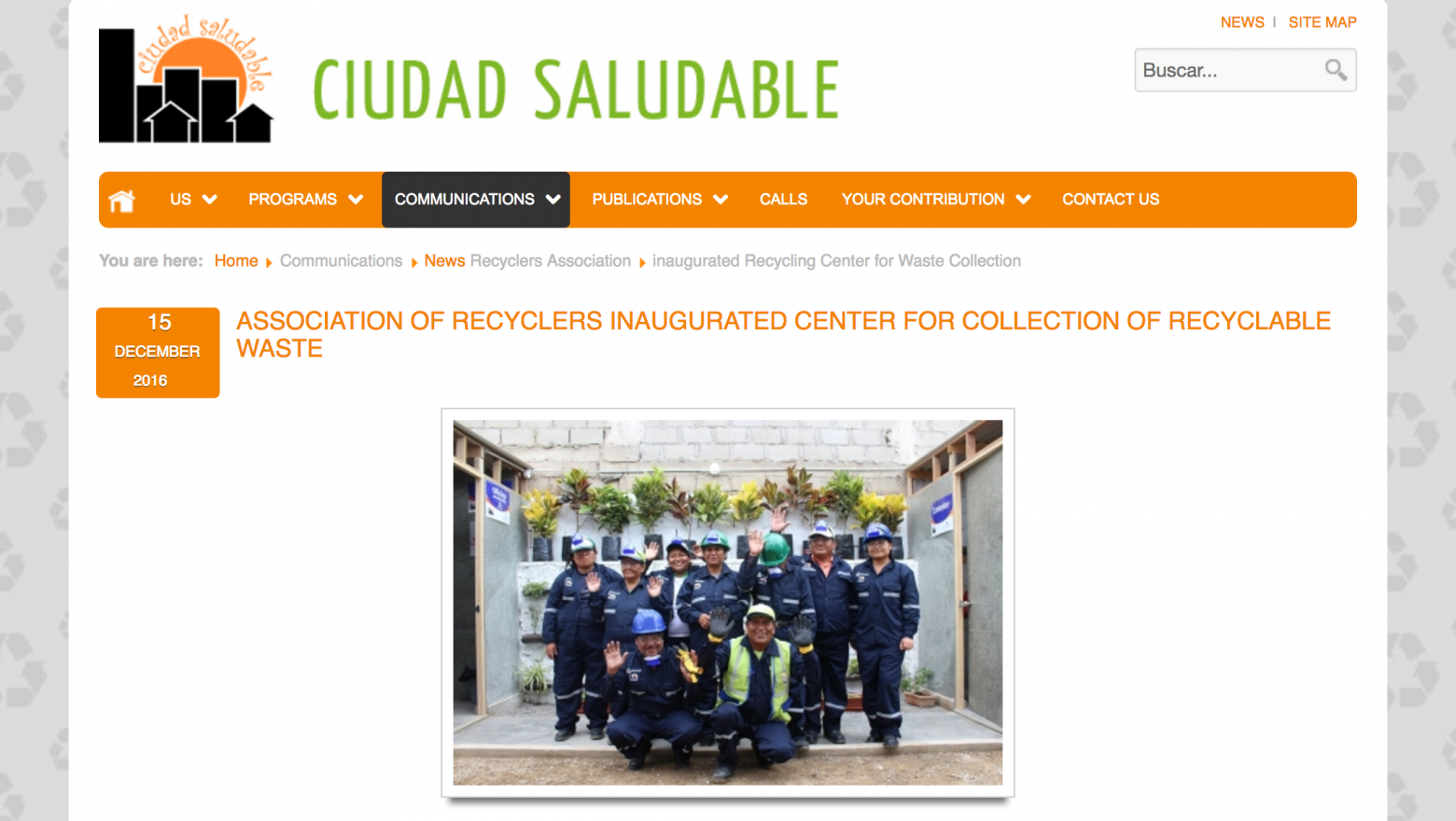
A screen grab of the Ciudad Saludable website (ciudadsaludable.org).

A screen grab of the Ciudad Saludable website (ciudadsaludable.org).
When traveling, I have been told that the best places to buy souvenirs are markets where one can find vendors selling a variety of things from knock off shoes to cheap shot glasses to handmade textiles. During my time at Global Fairness Initiative (GFI), I have learned how unprotected these people are in terms of not qualifying for certain social and financial benefits provided by their government due to the informal sector not being recognized.
Informal jobs are those that lack adequate documentation, and is prevalent in developing countries because of few formal, income-generating employment opportunities. In a way, the informal economy is beneficial because it is an alternative to income. However, there are cases when the market has threatened people’s well-being due to a lack of regulation. Thus, it can perpetuate poverty and instability. For this reason, GFI advocates for the integration of the informal sector with the formal sector.
Since 2009, the government of Peru has recognized recyclers for their activity and promotes the industry’s formalization and integration into the Solid Waste Management Systems. GFI currently has a project in Peru called Peru Recyclers Leadership Initiative. GFI partners with Ciudad Saludable, an organization in Peru that is committed to sustainable development and with significant professional experience in the design, management, implementation, and evaluation of projects. Together, they are launching a business development module and leadership academy to help recyclers in Peru advance in the formal sector.
GFI now works with Ciudad Saludable to ensure that the recyclers move to the formal sector successfully by strengthening the value chain. The emphasis is on improving occupational health and increasing economic income through the provision of trainings, uniforms, tools, and other resources.
The work that GFI does is important because they work with partners who are in the communities. GFI does not try to put its name in the spotlight but rather pushes for the local partners to obtain recognition. This is a sustainable approach to programmatic work because the ones who will continuously work on this initiative is Ciudad Saludable not GFI.
Additionally, this project serves to form a long-term source of employment for people in Peru. This will give stability to people and will reduce poverty in Peru over time, which is related to the first Sustainable Development Goal.
Places for improvement in the area include income equality between men and women, livable wage, and increasing social benefits such as health insurance for employers. People should have a stable and reliable source of income to better their livelihoods. Addressing the informal sector is an important step in reducing poverty especially in developing countries. This will help move the UN Sustainable Development Goals forward.